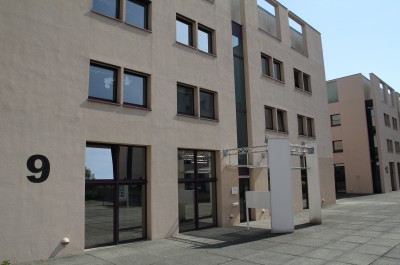| Projectperiod |
01.11.2020 – 31.07.2021
| Projectstaff |
Prof. Dr. Tillmann Bartsch (Projectmanager)
Nora Labarta Greven (Projectemployee)
Johanna Schierholt (Projectemployee)
Bettina Zietlow (Projectmanager)
| Funding |
Federal Ministry of Justice and Consumer Protection
| Projectdescription |
Human trafficking. This term already shows that it is about a behavior that does not accord with the basic idea of our legal system and of the human as a “purpose in itself” (BVerfG NJW 1977, 1525, 1526). That is why the German legislator tries to put an end to the “trafficking in human beings” with the use of intensive intervention, such as the criminal law.
This effort resulted in the “law for the improvement of the control on human trafficking and for the change of the central registry as well as the 8th Book of the Social Code” from the 11.10.2016 (BGBl. I Nr. 48, 2226). This law reformed the main penal rules of human trafficking in an extensive way (§§ 232 bis 233a StGB). The main aim of the reform was the “increase of the practicable use of the provisions and the improvement of the control of human trafficking, especially in terms of human trafficking for the exploitation of labour” (BT-Drs. 18/9095, 18). If the aim was achieved will now be reviewed in the context of an evaluation study by the KFN, funded by the Federal Ministry of Justice and Consumer Protection. The study works as follows:
On the one hand side, already existing statistical data on number of cases of the new provisions regarding human trafficking (§§ 232 bis 233a StGB) for the years 2017 to 2020 need to be assembled, exploited and analysed and, if possible and reasonable, compared to the human trafficking cases in the former legal situation. On the other side, there must be an in-depth analysis of the criminal prosecution practice. This happens primarily with a research of files from finally convicted cases of human trafficking. In addition to that, there will be interviews with judges, prosecutors, police officers, representatives of the Customs Criminal Investigation Office, Employees of special counselling centers, representatives of accessory prosecution, as well as other experts. The project will end in a group discussion on which different people, who are job-related in contact with the penal prosecution of human trafficking, should take part.

